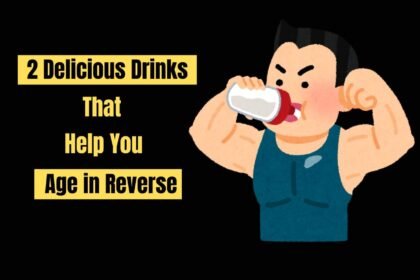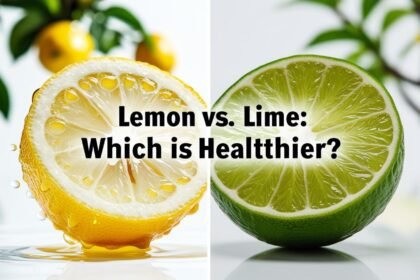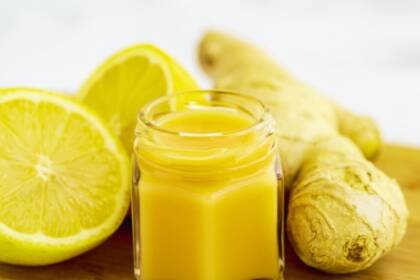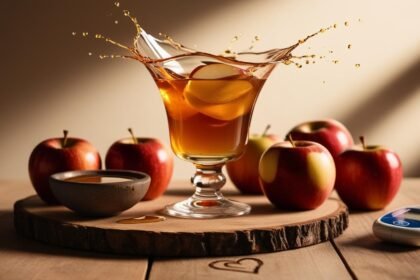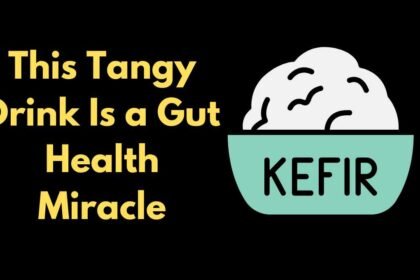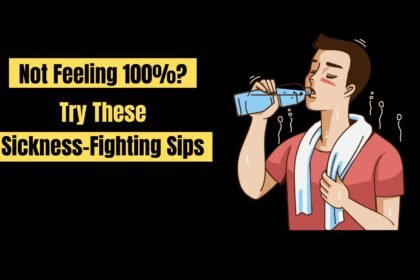High blood pressure, also known as hypertension, affects millions globally and is a leading risk factor for heart disease and stroke.
While conventional medications are often necessary, many people are also exploring natural remedies that may offer additional support.
One such remedy that has been gaining attention in scientific circles is hibiscus, particularly in the form of hibiscus tea.
But how effective is hibiscus for managing high blood pressure? And what does the research say?
Let’s explore the evidence behind hibiscus and its role in supporting cardiovascular health.
What Is Hibiscus?
Hibiscus sabdariffa is a flowering plant known for its vibrant red petals. Often used to make herbal tea, hibiscus is not only a flavorful beverage but also a powerhouse of antioxidants.
The most commonly used part of the plant is the calyx, which is rich in polyphenols, anthocyanins, and other bioactive compounds.
These natural compounds are believed to help relax blood vessels, enhance blood flow, and ultimately reduce blood pressure.
How Hibiscus Helps Lower Blood Pressure
The potential blood pressure-lowering effects of hibiscus are mainly attributed to its antioxidant content.
These antioxidants combat oxidative stress – a condition that contributes to vascular stiffness and high blood pressure.
Here’s how hibiscus works:
- Vasodilation: Hibiscus relaxes the walls of blood vessels, allowing blood to flow more freely and reducing pressure.
- Diuretic Effect: Some studies suggest that hibiscus may act as a mild diuretic, helping the body eliminate excess sodium and fluids, which can contribute to lower blood pressure.
- ACE Inhibition: Hibiscus may inhibit the angiotensin-converting enzyme (ACE), similar to how some blood pressure medications function. ACE is responsible for narrowing blood vessels, so blocking it helps them relax.
What the Research Says
Multiple studies have examined the connection between hibiscus and blood pressure. The findings are promising:
- A study published in the Journal of Advanced Pharmaceutical Technology & Research compared hibiscus tea with standard blood pressure medication and found that hibiscus may be nearly as effective as pharmaceutical interventions in managing mild hypertension.
- Another study, published in Plants (Basel), involved participants with uncontrolled hypertension. Researchers found that drinking hibiscus tea led to significant reductions in systolic and diastolic blood pressure, suggesting that hibiscus could be a beneficial adjunct therapy.
- A third notable pilot study indicated that daily consumption of 1 to 3 cups of hibiscus tea can have a measurable and clinically relevant impact on blood pressure levels.
In essence, hibiscus is not just folklore – it’s science-backed.
Dosage Guidelines: How Much Hibiscus Should You Take?
One of the challenges with herbal treatments is the lack of standardized dosing. However, current research provides some useful insights.
- Most clinical studies have used 1.25 to 3 grams of dried hibiscus petals per cup of tea.
- A typical recommended intake is 1 to 3 cups of hibiscus tea daily, consumed consistently over several weeks.
Important Note: Always consult a healthcare professional before adding hibiscus or any supplement to your routine, especially if you are already taking blood pressure medication. Combining the two without supervision could lead to excessively low blood pressure.
How to Prepare Hibiscus Tea
Making hibiscus tea at home is simple and cost-effective. Here’s how:
Ingredients:
- 1.5 to 3 grams (roughly 1 to 2 teaspoons) of dried hibiscus petals
- 1 cup of boiling water
Instructions:
- Add the hibiscus petals to a teapot or cup.
- Pour boiling water over the petals.
- Cover and steep for 5–10 minutes.
- Strain and enjoy warm or chilled.
Optional: Add a slice of lemon or a touch of honey for flavor, though unsweetened is best for those watching their blood sugar or calories.
Potential Side Effects and Precautions
While generally considered safe, hibiscus is not for everyone. Here are some important considerations:
- Drug Interactions: Hibiscus may interact with medications, particularly diuretics, ACE inhibitors, and other antihypertensive drugs.
- Pregnancy: Some animal studies suggest that hibiscus might have emmenagogue effects (stimulating blood flow in the pelvic area and uterus), so it’s best avoided during pregnancy.
- Low Blood Pressure: If you already have low blood pressure (hypotension), hibiscus might cause further drops and should be consumed with caution.
Always check with a healthcare provider if you have underlying conditions or are on prescribed medications.
Why Choose Hibiscus Over Other Herbal Remedies?
There are many herbs touted for their heart health benefits – garlic, flaxseed, and hawthorn, to name a few. So, what makes hibiscus stand out?
- Strong Scientific Backing: Multiple clinical trials support its blood pressure-lowering benefits.
- Accessible: Hibiscus tea is easy to find in grocery stores and online.
- Affordable: Compared to supplements or medications, hibiscus tea is relatively inexpensive.
- Pleasant Taste: Unlike some bitter herbal remedies, hibiscus has a tart, fruity flavor many find enjoyable.
Final Thoughts
While hibiscus may not replace prescription medications, it can be a powerful natural ally for those managing high blood pressure.
With its ability to relax blood vessels, improve circulation, and reduce oxidative stress, hibiscus offers both flavor and function.
If you’re looking to adopt a holistic approach to cardiovascular health, a daily cup or two of hibiscus tea could be a simple and effective step.
Just remember: natural doesn’t always mean risk-free – so always loop in your doctor before making any major changes to your health regimen.
Disclaimer
This article is for informational purposes only and does not constitute medical advice. Always consult with a healthcare provider before making any changes to your treatment or lifestyle, especially if you are on blood pressure medications or have underlying health conditions.






